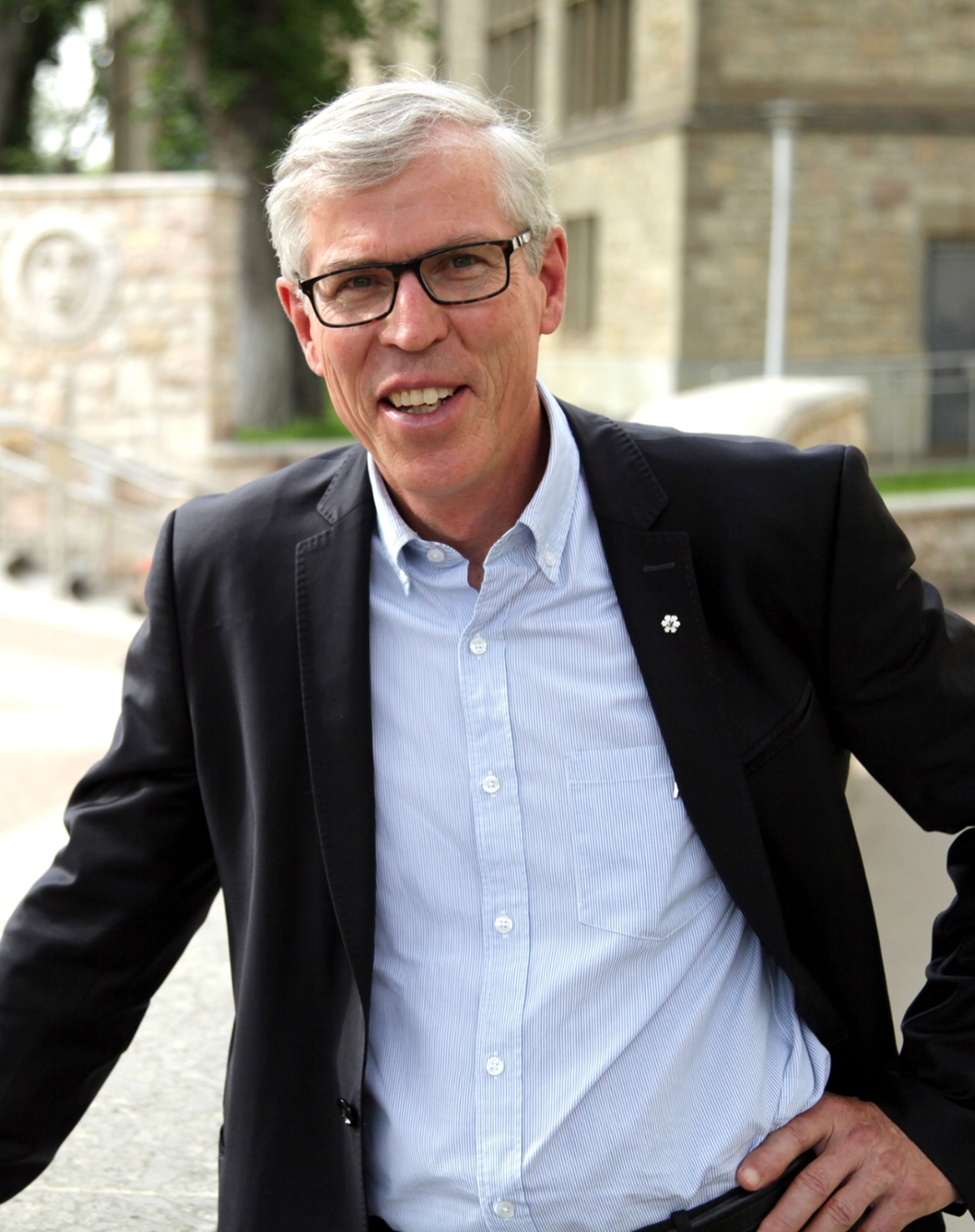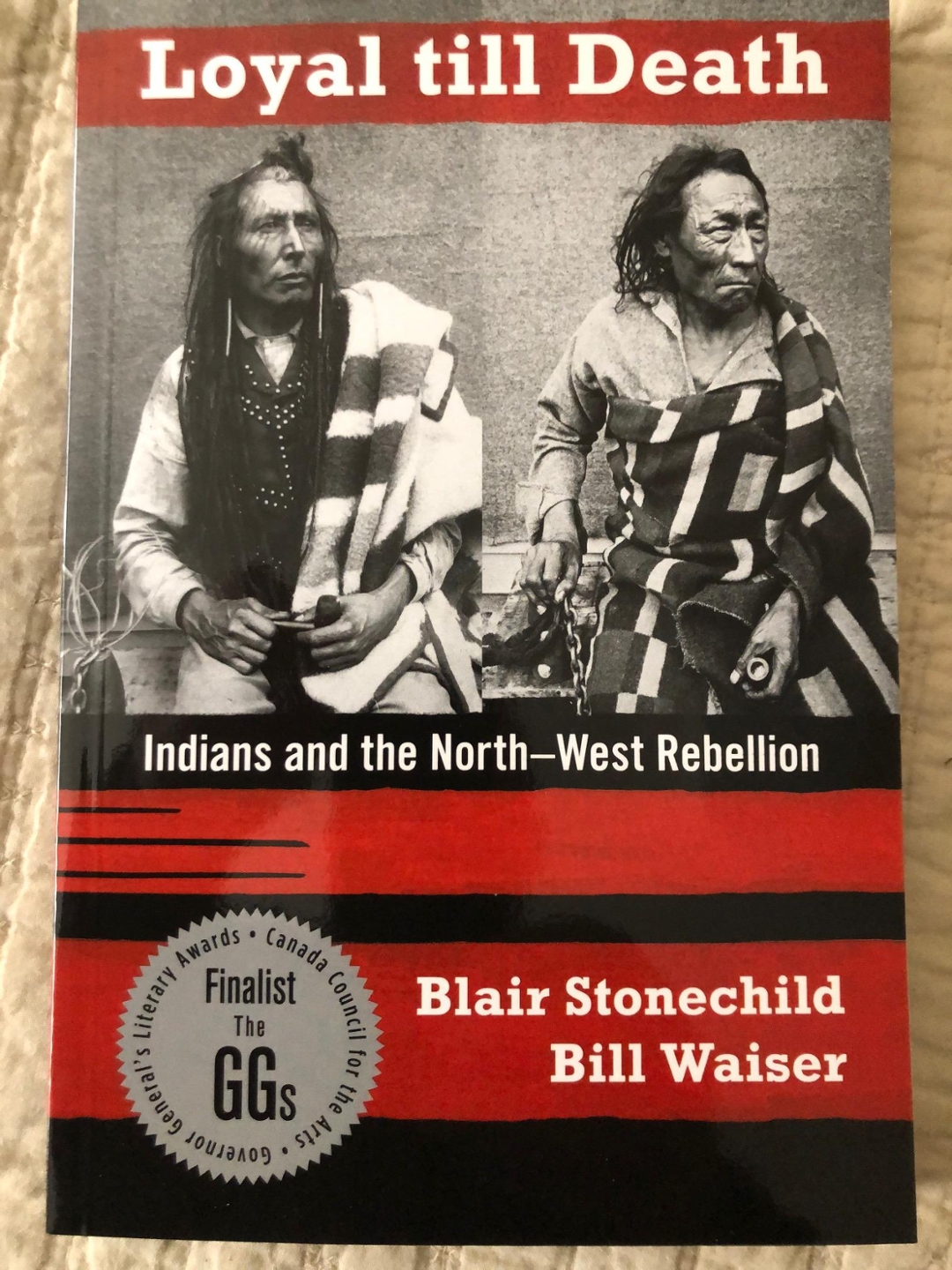
Chief Poundmaker receives an apology
“I witnessed history that day."
By JOHN GRAINGERThat statement from Bill Waiser (MA’76, PhD’83, DLITT’10) outlines the significance he sees stemming from the federal government’s apology to the Poundmaker First Nation last May.
Prime Minister Justin Trudeau came to Saskatchewan with the sole purpose of exonerating Chief Poundmaker, more than 130 years after the chief’s death.
“Trudeau’s visit to the Poundmaker First Nation to deliver an apology on behalf of the Canadian state was important in the sense that his presence here as prime minister was a signal that was an important and meaningful event. And he was warmly received because of that,” Waiser said. “His words were very measured, very thoughtful and very heartfelt that day.”
Poundmaker was charged with treason-felony, convicted and sentenced to three years in the Stony Mountain Penitentiary in Manitoba. Because of ill health, Poundmaker was released seven months after his conviction and died shortly after in 1886 at the age of 44.

Residents of the Poundmaker First Nation near Cut Knife, Sask., located about 90 minutes west of Saskatoon near Battleford, say their chief was not the troublemaker nor instigator he was made out to be by the Canadian government. Rather, Poundmaker was a peacemaker and someone who was standing up for his people during the time of the 1885 Northwest Rebellion.
Waiser, a distinguished professor emeritus at USask, is regarded as the foremost scholarly expert on that piece of Canadian history. Along with Blair Stonechild, Waiser wrote Loyal Till Death: Indians and the North-West Rebellion, which detailed the Poundmaker story. Waiser, who was named a member of the Order of Canada in 2017, was invited as a guest to witness the ceremony.
Two features of the prime minister’s speech that day were vitally important, he added. First, reconciliation is something for all Canadians to participate in.
“We have to walk side by side together down the road to reconciliation.”
Secondly, Waiser said there remains another important, and often forgotten, piece to the process.
“There really can’t be reconciliation until we recognize past wrongs and confront some hard truths about Indigenous/non-Indigenous relations in this province and this region, and make amends for them.”
Sometimes, a simple handshake can be a meaningful gesture of reconciliation. That was not the case for Poundmaker, Waiser said.
In late May 1885, Poundmaker met with Major-Gen. Frederick Middleton at Fort Battleford.
“Poundmaker offered General Middleton his hand to shake and General Middleton refused to do so,” Waiser said. “General Middleton more or less said ‘I refuse to shake hands with rebels.’ ”
At the ceremony with Trudeau, Poundmaker Chief Duane Antoine offered his hand to Trudeau as a step towards reconciliation. Trudeau accepted the gesture.
“There’s tremendous symbolism there,” Waiser said.
From that handshake comes the next steps in a meaningful effort to repair the relationship between government and the Poundmaker First Nation.
“What Trudeau did was a beginning,” Waiser said. “There’s a lot more work to be done, but it’s an important beginning, a significant beginning.”
Waiser said it’s also imperative for the provincial education system to ensure students have a better understanding of our history.
“The Poundmaker story has been taught in the university classroom for several years now. I taught it. But it may not be as publicly known as it should be.”
There are people who wonder why there is such a fuss made about Poundmaker so many years after his conviction. Waiser said the reason is very simple.
“Why does it matter? Well, I think in the case of anybody who’s been wrongfully convicted, you should look at the circumstances and act on it. I don’t think time should be a factor.”
Rewriting history when a correction is needed is something Waiser will be more than happy to witness again.


